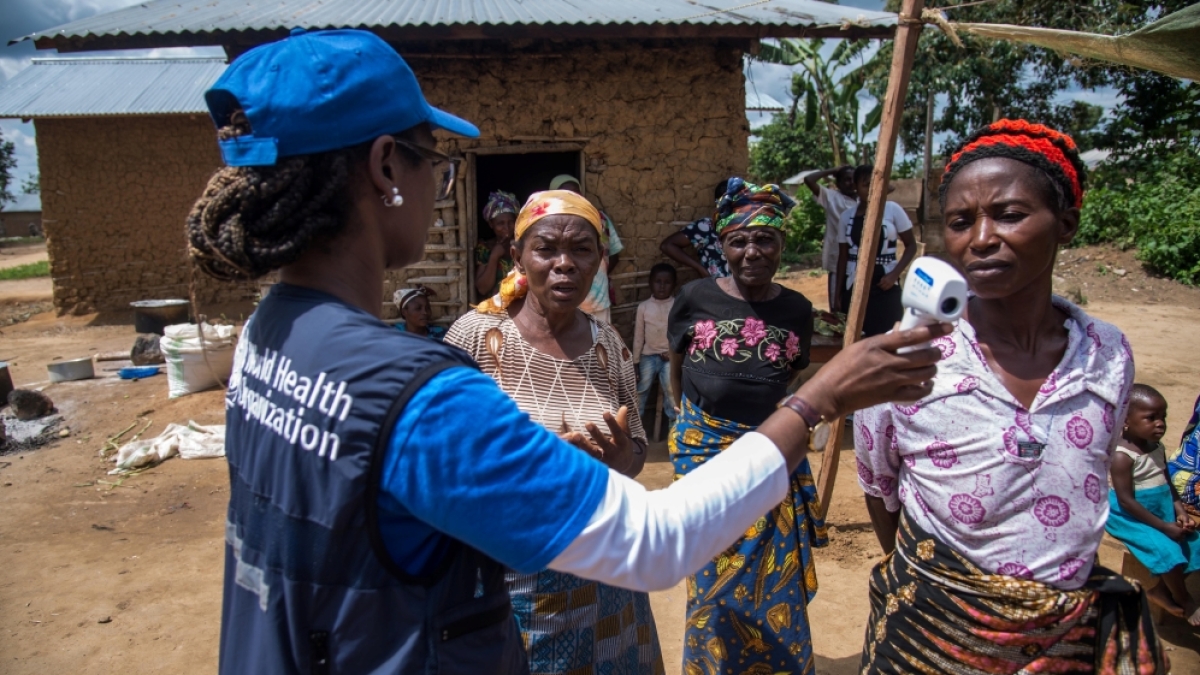Turning the page in history on its deadliest conflict, countries came together in 1948 to heal a blood-stained world. After years of war, distrust and pain, nations have lifted the physical and mental well-being of people to a new level, forging a global compact and purpose to protect and advance health for all.
A lofty sentiment turned into practical reality 75 years ago with the coming into force of the Constitution of the World Health Organization and the creation of the WHO as a specialized agency of the United Nations dedicated to the promotion of human health. WHO has been given the unique mandate to advance the well-being of all and the unique ability to bring all governments and partners to the same table.
Fast forward to today, as the WHO celebrates its 75th anniversary of World Health Day on April 7, that mandate and convening capacity remains more vital than ever. At the same time, the world needs a renewal of this commitment to put the health of everyone first, from our grandparents to our children born today and in the future.
COVID-19, conflict, climate change and commercial causes of ill health, such as unhealthy food and tobacco, remind us of how precarious our lives are and how, without a constant commitment to advancing our well-being collectively, the fortunes of vulnerable communities around the world will remain at risk.
A fundamental line of the WHO Constitution states that “the possession of the highest attainable standard of health is one of the fundamental rights of every human being, without distinction of race, religion, political opinion, economic or social status”.
This has guided WHO’s work to promote, ensure and protect health for all. There have been many accomplishments along the way.
Among the best known is the eradication of the ancient scourge of smallpox. Today, the world is on the verge of eradicating poliomyelitis too, with annual cases down 99.9% since the 1980s. Other successes include the elimination or near elimination of five tropical diseases , the generalization of childhood vaccination and the establishment of global standards for drinking water.
In addition, WHO has helped countries adopt a landmark tobacco control treaty, regulate the aggressive marketing of breastmilk substitutes, and report on health emergencies that may spread globally. WHO played a catalytic role in advancing the development and deployment of the first-ever Ebola and malaria vaccines, which are now saving lives across Africa. WHO’s work in humanitarian settings has provided life-saving care to millions of people.
The list continues. As the WHO turns 75, there is much to be proud of in the organization and the countries that created it.
But big challenges remain.
COVID has shown how we, as a global community, are as immune to pandemic threats as the least prepared nation. Too many people do not have access to affordable, quality health services, and instead suffer from preventable or treatable health conditions.
Compounding this are modern concerns, such as the impacts of the climate crisis that put millions of people at risk from floods and droughts, rampant air pollution, and gratuitous misinformation and misinformation that impede people’s health choices.
People’s well-being is also threatened by factors other than health, including conflict, economics and trade.
To meet these challenges, WHO has changed and adapted to perform better today and for the next 75 years.
Our work revolves around five axes: improving the level of health for all; ensuring that everyone has equitable access to affordable, quality health services; protect the world against new and known pathogens; empowerment of science and scientific information to promote good health; and strengthen WHO to meet the demands of today and tomorrow.
In the wake of COVID, we are helping countries negotiate a historic pandemic agreement, anchored in the WHO Constitution, to collectively prevent and respond to future pandemic threats. Nations are also modifying the International Health Regulations to make them relevant in a post-COVID world and strengthening the financial, governance and operational basis of the WHO for a safer and healthier world.
The reasons for these measures are clear.
COVID has set back progress towards achieving the health-related Sustainable Development Goals and caused incalculable human, social and economic losses. We must therefore recover lost gains by redoubled efforts to make universal health coverage a reality for all, centered on primary health care, and by strengthening national and global systems, from cutting-edge surveillance to investment. in the preparation of countries, to make a more secure world.
The cornerstone of WHO’s work is science and evidence. Data-based guidance remains groundwork, helping WHO and countries invest resources where health needs are greatest.
Access to evidence-based advice also helps people make wise health choices. This is essential today because, as COVID has shown, misinformation and disinformation have made decision-making even more difficult and, in extreme cases, deadly.
WHO has transformed its operations to effectively implement work on all these fronts, and more, with a lucid focus on impact at the community level.
Now, 75 years later, and after a new virus showed how vulnerable the world remains, the need for the WHO is more vital than ever. If the organization had not been created all those years ago, it would have to be created today. So, on the occasion of WHO’s anniversary, I thank all countries and partners for their commitment to laying the foundations of WHO in 1948 and continuing to strengthen them for a healthier, safer and more fairer for all.
The opinions expressed in this article are those of the author and do not necessarily reflect the editorial position of Al Jazeera.

